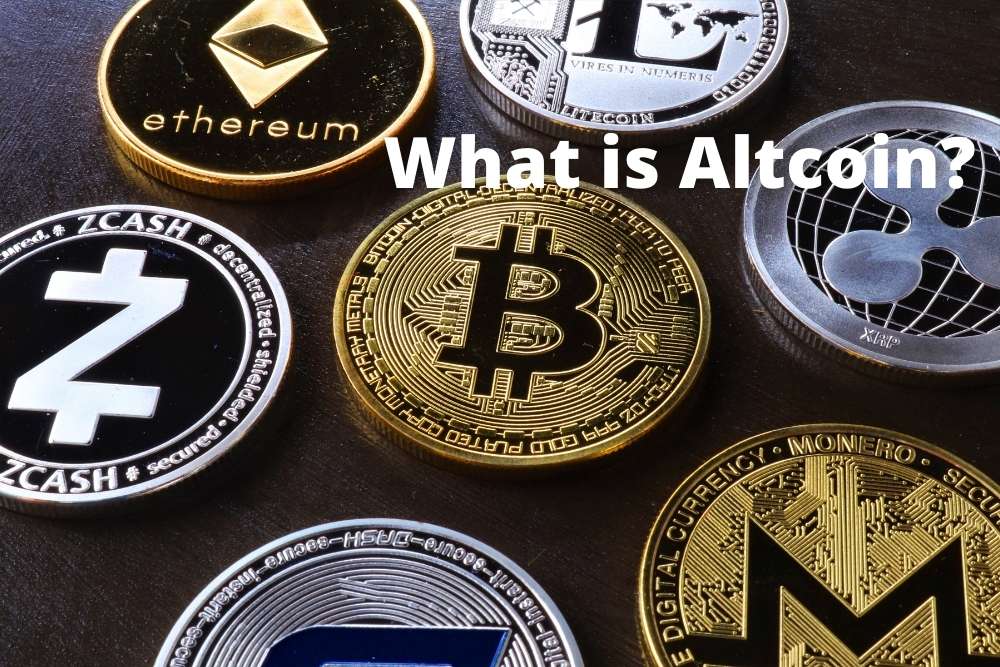What is Altcoin?
The word Altcoin refers to any cryptocurrency which is not Bitcoin or an alternative to bitcoin. Altcoins were launched after the massive success of bitcoin. After the release of bitcoin, around 900 altcoins have been created till now. With the growth of the cryptocurrency market, the number of altcoins is also increasing.
As we all know that bitcoin was the first cryptocurrency which got this much recognition and became so popular in such a short time. By keeping the popularity of bitcoin in mind, other variations of bitcoin were created for various purposes. Such as Litecoin was created to process the transactions faster, some are created to optimise privacy, hashing algorithm, distribution method etc. Namecoin, Litecoin and Dogecoin are some examples of the altcoin. These variations of bitcoin are also known as “forks of bitcoin”.
Which was the first altcoin?
Namecoin is the first created altcoin that went public in April 2011. Namecoin also works as a cryptocurrency. But the main aim of Namecoin is to decentralise domain name registration. It maintains its place under the top ten cryptocurrencies according to market cap. In this altcoin guide, we will share all possible information and facts about Altcoin, so tighten your laces and get on the journey of Altcoins.
How do Altcoins work?
Altcoins work in a very similar way to the original bitcoin. A sender sends a payment from his/her account by using a private key to the receiver’s account or digital wallet. In the case of cryptocurrency, there is a recording ledger known as a blockchain, where all the transactions are recorded which is permanent and public. So anyone can access these records. The transactions are secured permanently; thus, these can’t be altered and can’t be denied. This recording ledger or blockchain is secured by mathematical proofs that validate the transactions in the blocks.
Types of Altcoins
Sometimes altcoins are created by some enthusiasts, and sometimes the purpose behind the creation is a whole new business. Altcoins are created to do something uniquely productive hence it often changes the rules of bitcoin.
For example, Solarcoin was created as a unit that can be exchanged for solar power production. Namecoin was created to decentralise domain name registration or as a new system of domain names on the internet. Litecoin was created to process the transactions faster.
1). Stablecoins
Stablecoins are altcoins and a type of cryptocurrency which is designed to tackle the volatility of cryptocurrency by binding their value to an underlying commodity, index or security. Tether is an example of a stablecoin; Libra is also a stablecoin which is under development by Facebook.
2). Digital tokens
Altcoins which operate as digital tokens are backed by an underlying blockchain platform. For example, Tether (USDT) can also be deemed as a digital token because it is created on Ethereum and other blockchains.
Some investors strive to earn profits by exchanging altcoins with each other. But it is risky, as an investment. Digital currencies trade on non regulated exchanges that make a trader vulnerable to fraud, price manipulation and other problems.
Pros and Cons of Altcoins
Pros:
1) Low transaction fees: Apart from securing the blockchain technology, the greatest benefit of using Altcoin as a payment method is the comparatively low transaction fee which is charged for every transaction.
2) Revamped on Bitcoin’s shortfalls: Altcoins are often tailored to convey a recognised defect with the Bitcoin framework, it could be anything such as mining cost, speed, or some other factor.
3) Provide competition: By twisting the rules under which Bitcoin is controlled, altcoin creators make some space for new candidates to join the Bitcoin system.
Cons
1) High possibilities of frauds and scams: There are high chances of frauds and scams with Altcoins. Compared to bitcoin, altcoins are usually the subject of fraudulent and scams activity.
2) Value is very volatile: Altcoins are not a good option as an investment. Because these are very new and the value of altcoins can change drastically.
Bottom Line
Here in this altcoin guide, we have covered most of the information about altcoins. Altcoin makes new space for new people who want to join altcoin. And if you want to make some transactions using altcoins, then it is beneficial for you as it costs a low transaction fee compared to bitcoin. Altcoins are useful in various ways. Now it is up to you how you want to utilise it.


